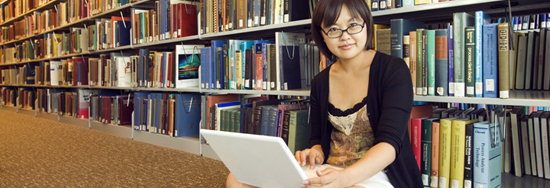Overview
Due to an ever-increasing number of applications to our Library & Information Technology Flexible Participation program, we have enough qualified applicants to fill the Fall 2024 Flexible Participation option intakes of this program and have closed applications for these intakes earlier than expected. We are accepting application for the Fall 2024 Regular option. Because the ever-increasing number of applications to our program, please apply now and complete your application as quickly as possible. Those interested in applying to the program, please submit the application and all necessary documents to Registrar and Enrolment Services as soon as possible. Applicants who have met all admission requirements will be contacted for interview sessions. See intake timeline.
For program inquiries, please contact the department via email at libtech@langara.ca. For application and English requirement information, please contact the Admissions office at 604.323.5241 or email admissions@langara.ca.
Langara College’s Library & Information Technology Program gives graduates access to a wide variety of jobs in both hands-on interaction with people and in behind-the-scenes technical services. The library career is for those who love working with the public, organizing information, and are committed to lifelong learning.
Our Library & Information Technology Diploma Program is recognized across Canada and has been developed in accordance with the Canadian Library Association Guidelines for the Education of Library Technicians in Canada. Students can complete the program entirely online, on-campus, or with mixture of both. Please view option chart to find the best fit.

Outcomes & Objectives
The Library & Information Technology Program has maintained its currency and competitiveness amid rapid technological advancement. Our graduates are highly skilled in today’s essential computer applications as well as specialized library management systems. We teach students important skills for developing search strategies for library databases and open resources on the internet. Students also learn how to catalogue, maintain, and retrieve print, digital and non-print resources as well as specialized media including film, maps and photographs.
Our students have the opportunities to practice what they have learned by completing two practicum placements in the community during their studies. Our graduates are successfully employed in public, academic, or special libraries such as medical, law, corporate and governmental institutions. Library technicians hold supervisory positions or work cooperatively with librarians and other professionals to manage information resources, from helping people retrieve information and materials, to records management for technology-based businesses.
Students in this career program pursue either a standard or online option. The regular option is primarily classroom instruction. The online option, known as Flexible Participation, accommodates distance learners who are working, living outside the Lower Mainland, or simply can't get to campus. Both program options recognize students' previous education and work experience; transfer credits are considered for equivalent courses, and flexible assessments are available for core library studies.
Students come to the program from various socio-cultural and age groups. They carry with them various forms of educational achievements and professional backgrounds, which gather together as they meet many challenges put forth by their instructors and fellow students.
Library & Information Technology students learn about:
- library history and new directions
- reference and reader’s services
- customer services
- library programs
- supervisory skills
- electronic and digital information storage and retrieval
- acquisitions and technical services
- subject analysis and classification
- Machine Readable Cataloguing (MARC)/Resource Description Access (RDA) for print and non-print media
- business computer applications
- automated library systems
- web applications and social medias
Graduates of the Library & Information Technology Program are well prepared for jobs through two separate field work placements, which is an essential component of this diploma program. During their course of study, students visit various types of libraries and explore a variety of options—including non-traditional roles—to find their niche.